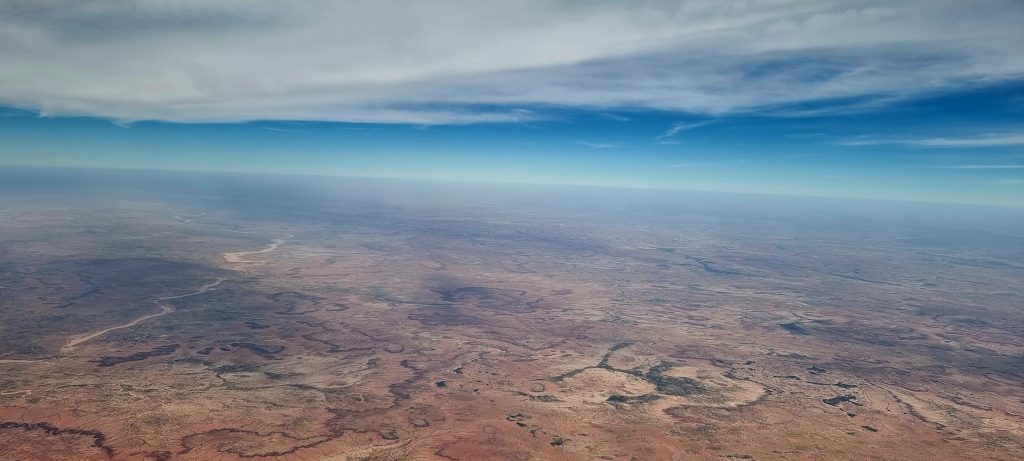Slapis Sahel Numerical Weather Prediction

SLAPIS SAHELProject Numerical Weather Predictionin SLAPIS Sahel One of the key objectives of the SLAPIS Sahel project is to strengthen national capacities in Numerical Weather Prediction (NWP) as a support for hydrological early warning, particularly for flash floods and flooding events along the Sirba River and the Niger River. The national meteorological agencies of Niger […]
DEM Generation from Multi-View Satellite Images in Sub-Sahel Region
Floods are causing a significant loss of human lives and valuable resources in West Africa. In particular, Niger and Burkina Faso were highly affected areas in past years. In order to predict flood, an accurate Digital elevation model (DEM) is required for flood mapping. At the studied area in Niger, up to this date, the […]
Bridging the communication gap in agrometeorological services: Enhancing the uptake and effectiveness for users in developing countries
Over the past decades, advancements in agrometeorological monitoring and forecasting have been driven by technology, infrastructure, and capacity building. Literature highlights that agrometeorological services support agricultural decision-making, boosting farmers’ resilience and income globally. However, challenges in communication and dissemination limit their effectiveness, particularly for smallholder farmers in remote areas. The problem extends beyond media type […]
Flood risk assessment of agricultural areas along the Niger river upstream Niamey
Much of the food supplied to the city of Niamey (1.5 million inhabitants), the capital of Niger, comes from 150 large commercial horticultural sites and 10 vast irrigated perimeters distributed along the Niger River upstream of the city. These areas are threatened by floods, such as the one that devastated paddy fields and horticultural areas […]
Flood Damage Risk Mapping Along the River Niger: Ten Benefits of a Participated Approach
Flood risk mapping is spreading in the Global South due to the availability of high-resolution/high-frequency satellite imagery, volunteered geographic information, and hydraulic models. However, these maps are increasingly generated without the participation of exposed communities, contrary to the Sendai Framework for Disaster Risk Reduction 2015–2030 priorities. As a result, the understanding of risk is limited. […]
Compound-event analysis in non-stationary hydrological hazards: a case study of the Niger River in Niamey
This study examines compound hydrological hazards in a non-stationary context, specifically focusing on the Niger River in Niamey. The hazard results from the confluence of local Sahelian and more remote Guinean tributaries, displaying seasonal floods. The study first investigates whether Niamey’s annual flood hazard is a compound result of Sahelian and Guinean flows, and then […]
Geospatial Capacity Building for Flood Resilience in the Sahel: the SLAPIS project case study
This study focuses on the development of a people-centred early warning system (EWS) against floods in the Sirba River basin between Niger and Burkina Faso. This densely populated area has witnessed an increase in extreme flooding events in recent years. Several flood forecasting systems in the Sahel exist, although there is no EWS that integrates […]
Comparative Trend Analysis of Precipitation Indices in Several Towns of the Sirba River Catchment (Burkina Faso) from CHIRPS and TAMSAT Rainfall Estimates
The increasingly frequent pluvial flood of West African urban settlements indicates the need to investigate the drivers of local rainfall changes. However, meteorological stations are few, unevenly distributed, and work irregularly. Daily satellite rainfall datasets can be used. Nevertheless, these products often need to be more accurate due to sensor errors and limitations in retrieval […]
Les Services Agrométéorologiques pour les producteurs ruraux pour le développement et la durabilité de l’agriculture au Sénégal, Mauritanie, Mali, Burkina Faso et Niger
L’agriculture sahélienne depuis son origine est confrontée à la variabilité climatique qui a caractérisé son développement au cours des millénaires et a conduit les agriculteurs à adopter des stratégies fonctionnelles pour minimiser les risques. Dans la seconde moitié du XXe siècle, l’agrométéorologie s’est développée comme une science appliquée pour soutenir l’agriculture, réduire les risques climatiques […]
The added value of the process in climate services co-production: Lessons from Niger
Climate services are recognized as an essential tool for sustainable development in strategic and climate-sensitive sectors. In developing countries, particularly in Africa, the literature offers successful examples of application, especially in the agricultural sector, which is dramatically sensitive to climate variability and change. While, initially, particular emphasis was placed on the outcomes of these services […]

